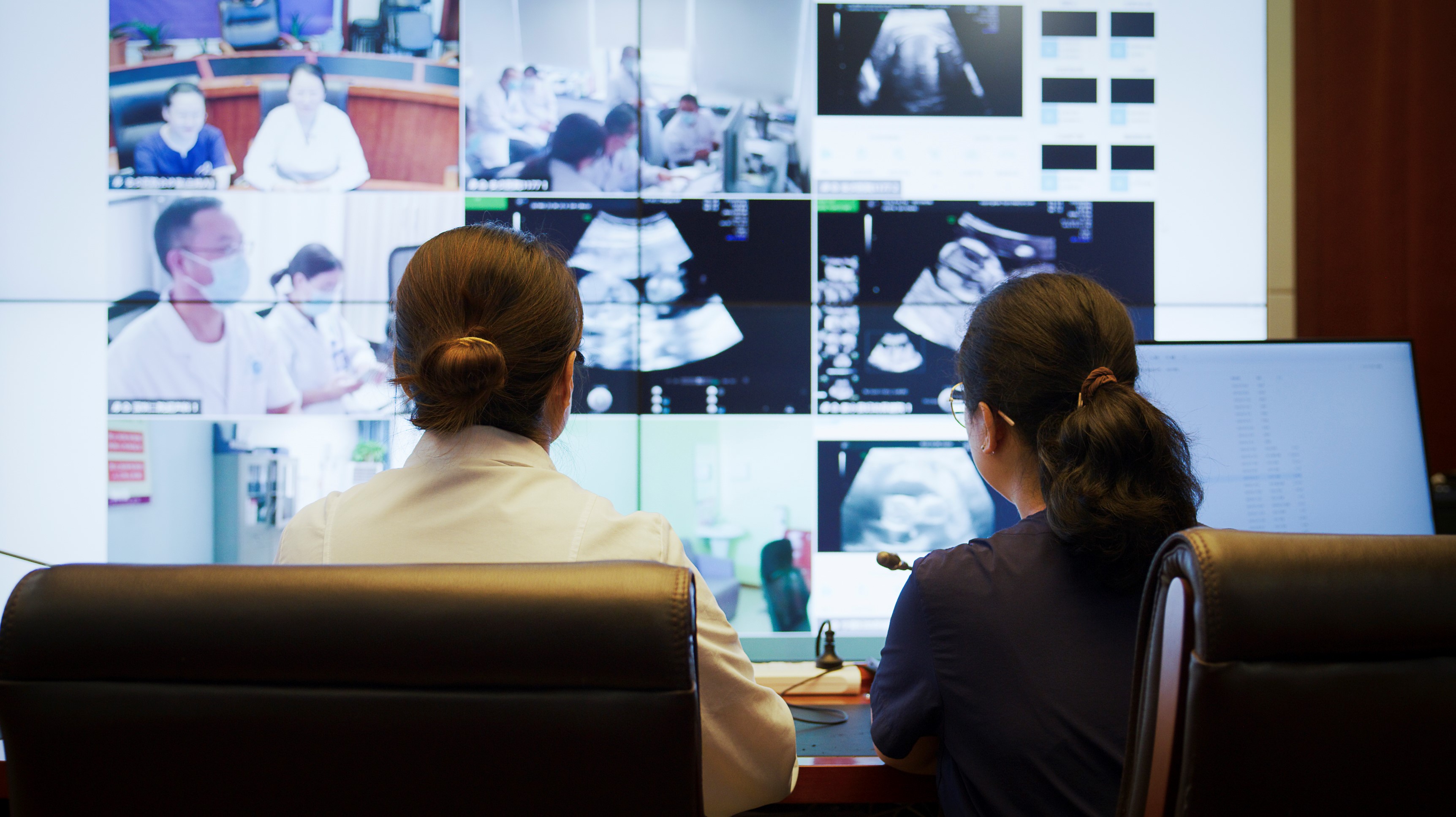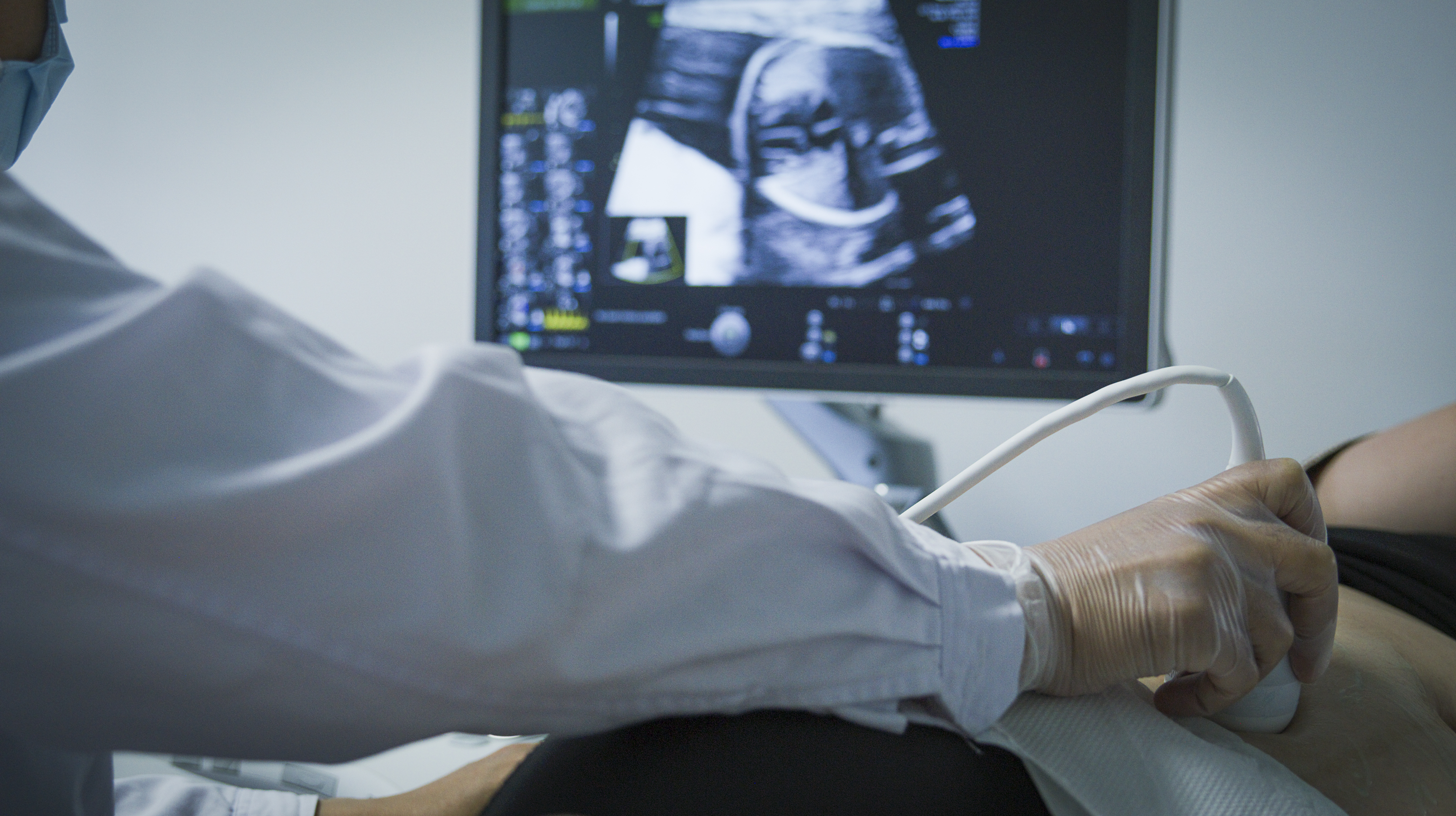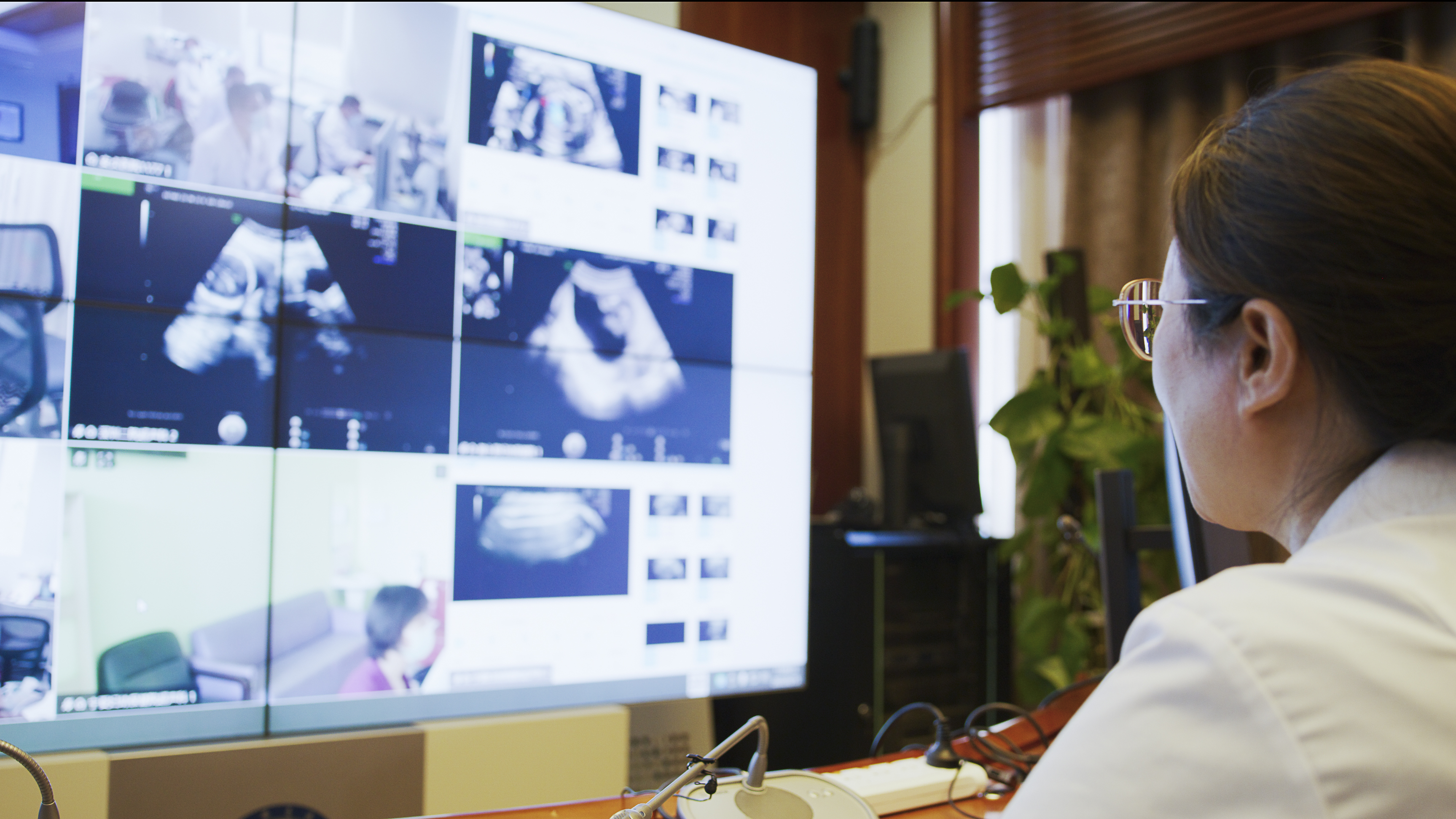In China, congenital heart disease (CHD) is one of the most common causes of death in children under five, even though medical advancements have greatly improved survival rates across the globe.
The catch is that in order to find and address CHD, pregnant women need access to specially trained physicians and cutting-edge technology — neither of which are common in rural China.
Doctors at Anzhen Hospital in Beijing, one of China’s largest cardiac surgery centers, decided to do something to offset the shortage of cardiac specialists in primary hospitals by using remote capabilities. They created a fetal heart center that offers remote consultations and allows them to diagnose CHD, even when the patient is thousands of kilometers away, so pregnant women and their babies can get the help they need.
Some 300,000 infants are born in China each year with CHD, a malformation in the heart or its major vessels. About a quarter of them will need lifesaving surgery before they’re a year old. Those who survive past five years often live with debilitating disabilities and heart disease that could contribute to a significantly decreased quality of life.
Early detection saves lives
The condition typically is diagnosed at around 18 to 22 weeks of pregnancy, using a special ultrasound called a fetal echocardiogram. CHD can be difficult to identify because the heart is tiny and constantly beating — not to mention that the fetus often is moving, too, making it difficult to keep the heart under observation. But recent breakthroughs using artificial intelligence and digital imaging have improved physicians’ ability to see CHD as the heart is forming and growing in utero.
“In China, in some rural areas, we lack doctors who are trained to do fetal scans and we lack the proper technology, which is why this condition is much more important here,” says Professor Yihua He, department head of the Cardiac Ultrasound Medical Center and head of the Fetal Medicine Consulting Center at Anzhen Hospital.
Early detection and intervention is critical so the heart can develop normally, says Simin Liu, Women’s Health Ultrasound product manager for GE HealthCare in China. “Most congenital heart disease has a good prognosis with intrauterine intervention or intensive perinatal management,” he says.
Anzhen’s pre- and postnatal treatment platform uses GE HealthCare’s Voluson™ E10, which offers the latest artificial intelligence technology. The clear images produced by the Voluson, combined with a range of specialized advanced analysis techniques, make it easier for radiologists to see the heart’s structure and blood flow and detect even minute abnormalities.
A digital platform to support clinics in rural China
Every day, images are sent to Anzhen from hospitals around the county for the specialists there to examine. A specially set-up consultation room allows radiologists to watch scans in real time so they can ask questions of the patient or the technician and offer immediate feedback.
When a heart defect is discovered, women are referred to specialists who can help. Common interventions, which may be done at Anzhen or another hospital, include closing a hole in the heart wall, widening narrow vessels and cutting off abnormal blood vessels, all of which the Voluson can help achieve. “The advantage of the Voluson series of products is clear imaging and precise guidance,” Simin says.
In the 10 years it’s been operating, the CHD center at Anzhen has served more than 10,000 women, with an average of 100 scans every day just on-site. For the doctors at Anzhen, the tough workload is part of the job. Their reward is seeing happy mothers and healthy babies.
“We are encouraged by the moms and their babies. Because of the accurate diagnosis of their babies, these children were able to be born and treated by our team,” says Professor He.



